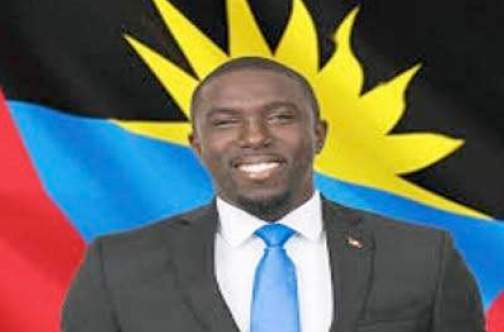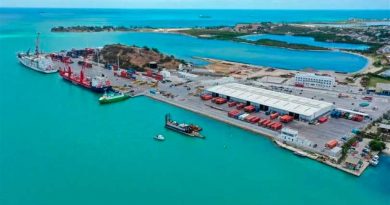Pringle participates in meeting of OECS Opposition leaders but insists that A&B cannot support greater free movement at present
Opposition Leader Jamale Pringle took part in the Third Meeting of
the OECS Leaders of the Opposition held virtually last Thursday,
March 21.
The objective of the meeting was to update these leaders on the
work of the Organisation of Eastern Caribbean States Commission
under its five strategic priorities.
These include accelerating regional integration; reinventing the
economy; valuing the environment; building resilience; and
advancing equity and inclusion.
The goal of these, the Commission says, is “to create a prosperous,
inclusive, and equitable future for its citizens through economic
integration, sustainable development, and regional cooperation.”
OECS Director-General
Dr. Didacus Jules told participants that the session was not only a
progress report on regional integration but was intended to deepen
the process of inclusion.
This is essential if the region is to achieve genuine progress on its
collective aspirations and in addressing its shared challenges, Dr.
Jules said in a press release.
There was also a strong focus on the impacts of free movement
within the Eastern Caribbean Economic Union (ECEU) and the work
accomplished to date, according to the release.
Earlier this month, in response to CARICOM’s call for its members to
open their doors to greater free movement across the wider region,
the Government of Antigua and Barbuda said it was unable to do so
at this time.
Pringle supported that position in a statement to State media:
“I think it is wise that the Government has decided against the full
free movement of CARICOM nationals at this time, because we
literally cannot afford it,” he said.
“As a State, we have a long history of being open and welcoming to
Caribbean sisters and brothers, and I don’t think you can find
greater diversity anywhere else in this region.
“However, our economy cannot offer them employment, since many
residents are already seeking work and not finding it – especially
our recent graduates.
“We don’t need any competition for the scarce jobs that might be
available, because it will create division and segregation,” the
Opposition leader cautioned.
“Our schools and healthcare system can barely provide for us who
already live here, while our housing stock is insufficient to
accommodate any large influx of new people. And the list goes on.
“We need to get our house in order before we can invite anyone else
in; and nobody can say that Antigua and Barbuda has not been
generous already in this regard,” Pringle concluded.
Meanwhile, the Commission press release adds, “the participants
also took the opportunity to hone in on matters of urgency in the
region, such as increasing crime rates and access to nutritional
food.”
The seven Opposition leaders who took part in the session made a
commitment to follow up with the Commission, so they can continue
to discuss regional integration efforts and any benefits to their
countries.




